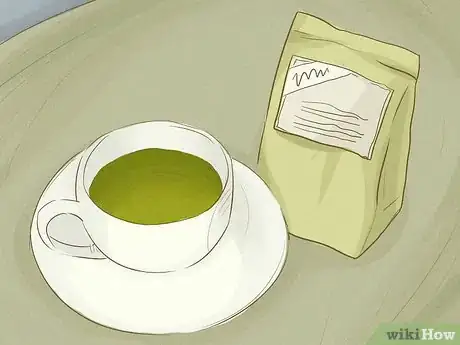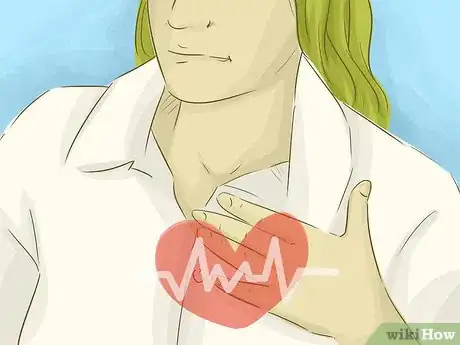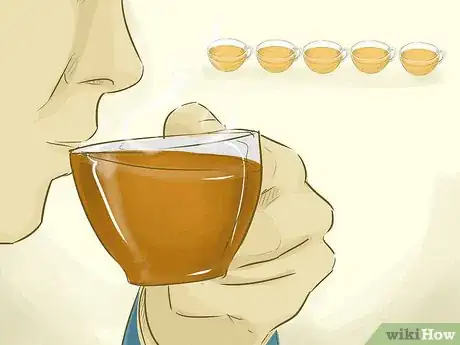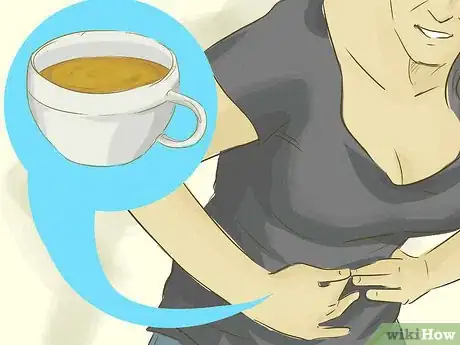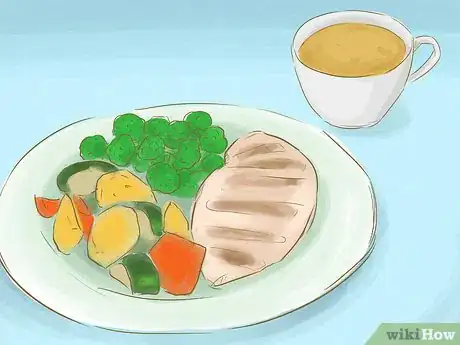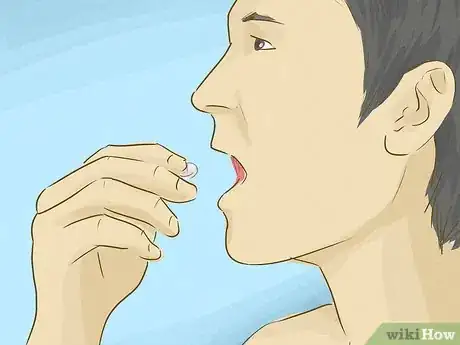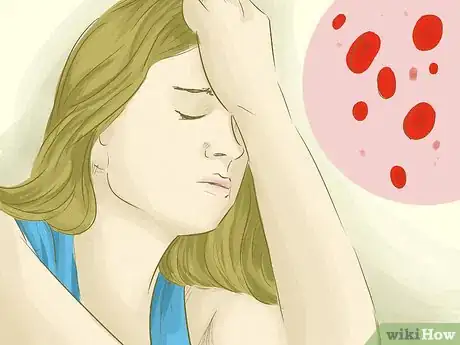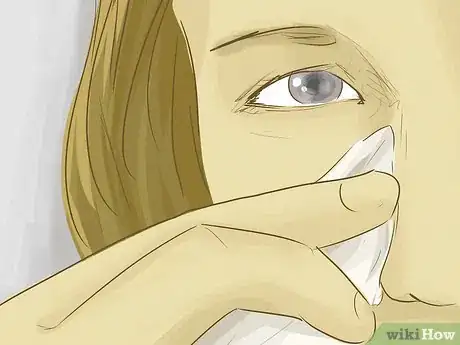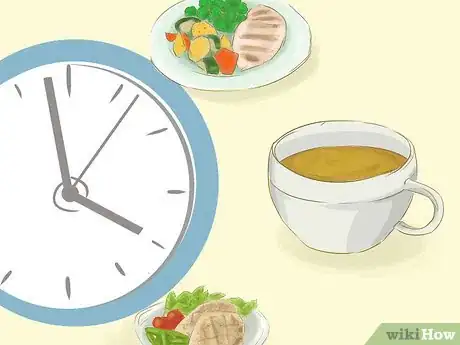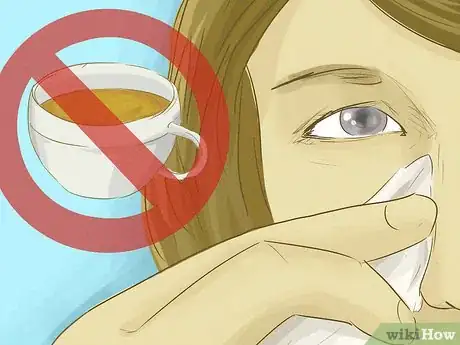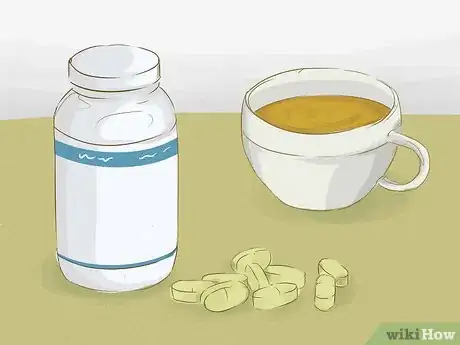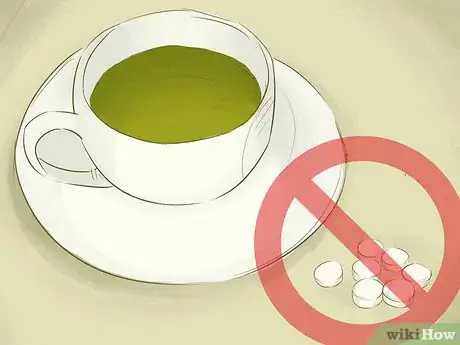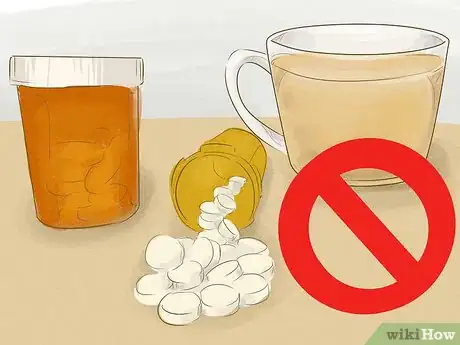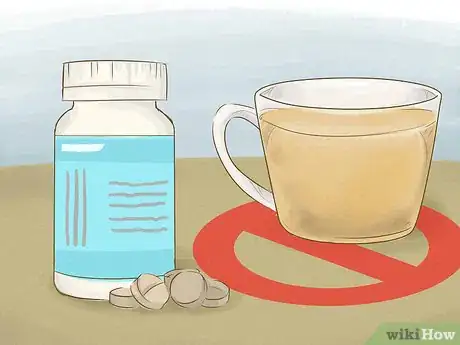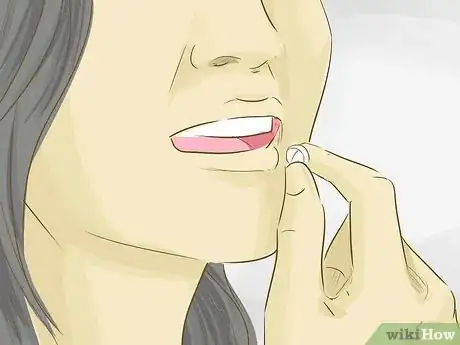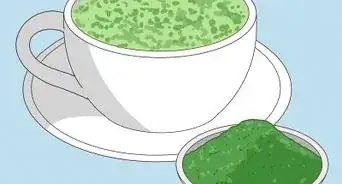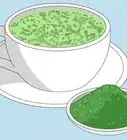This article was co-authored by Katie Hake RDN, LD. Katie Hake is a Registered Dietitian, Licensed Nutritionist, Fitness Professional and the Owner of Katie Hake Health & Fitness, LLC. She specializes in constructing sustainable life changes in health and fitness. Katie received a dual degree BS in Dietetics and Nutrition & Fitness and Health from Purdue University.
There are 10 references cited in this article, which can be found at the bottom of the page.
wikiHow marks an article as reader-approved once it receives enough positive feedback. In this case, several readers have written to tell us that this article was helpful to them, earning it our reader-approved status.
This article has been viewed 947,850 times.
Though green tea has some health benefits, it can also cause side effects such as nervousness and upset stomach. Some of the problems are due to the caffeine in the tea—although it's primarily water-based, it does contain a small amount of caffeine. Other problems are due to certain substances in the tea. This article will help you navigate when and how much tea you can have per day, even if you do suffer from some of the side effects.
Steps
Avoiding Caffeine Problems
-
1
-
2Understand the side effects of drinking too much caffeine. Too much caffeine can cause an irregular heartbeat, heartburn, irritability, nervousness, and much more.[3]
- Caffeine can also cause problems with blood sugar levels for diabetics, make diarrhea worse, and also cause issues for those with irritable bowel syndrome.[4]
- The caffeine in green tea can cause calcium to leave your system that your body needs to create strong bones.[5] If you have osteoporosis or are at risk for bone problems, green tea can be a problem for you.[6]
Advertisement -
3Know your upper limit. The main way to avoid the problems of too much caffeine is to keep your consumption low. You should top out at 5 cups a day to avoid problems.[7]
-
4Keep it to fewer cups if you're sensitive to caffeine. If you know you are sensitive to caffeine, choose a decaffeinated version or drink green tea in moderation.
-
5Drink 2 cups or less if you are pregnant. Green tea, because of its caffeine level, can be unsafe for pregnant women and their babies. It can even lead to miscarriage if it is consumed in high doses. Always check with your doctor if you're unsure about consuming caffeinated beverages while pregnant.[8]
Avoiding Upset Stomach
-
1Know the risks. The tannins in green tea can upset your stomach because they cause your stomach to produce more acid.[11]
-
2Know who's at risk. The people at highest risk for this problem are those with stomach problems such as acid reflux.[12] For instance, if you already have heartburn on a regular basis, green tea can worsen the problem.
-
3Drink green tea with meals. Green tea mainly causes problems if you drink it before eating anything. Therefore, wait until you've started your meal to start drinking it.[13]
-
4Drink green tea with milk. Milk can help soothe stomach acid, so pouring a little in your tea can help with this problem.
-
5Try an antacid. An antacid such as calcium carbonate (Tums) can soothe your stomach if you've gotten an upset stomach from green tea.[14]
Avoiding Green Tea with Anemia and Glaucoma
-
1Understand the problem with iron. Green tea can decrease your body's ability to absorb iron.[15] The catechins in the tea block some of the iron from being absorbed in your body.[16]
- Know the risks. If you have anemia, drinking green tea can make it worse.[17]
- Iron-deficiency anemia is caused by not having enough iron in the blood, which in turn lowers either the red blood cells or hemoglobin. Anemia can cause fatigue because not enough oxygen is being carried throughout your body. One cause of anemia is excessive menstrual bleeding. If you think you may be anemic, talk to your doctor about taking an iron supplement and eating iron-rich foods.
-
2
-
3Avoid drinking green tea with meals if you have an iron deficiency. Instead, drink your tea between meals to give your body a chance to absorb the iron.[20]
- Eat foods rich in iron and vitamin C. Iron can help with anemia, while vitamin C increases your body's ability to take in iron.[21]
- Iron-rich foods include meats, beans, and greens, to name a few.[22]
- Foods rich in vitamin C are things like citrus fruits, kiwi, strawberries, broccoli, and peppers.[23]
-
4Avoid green tea altogether with glaucoma. Green tea increases the pressure in your eye within 30 minutes of drinking it, and the effects can last beyond an hour and a half of drinking the tea.[24]
Understanding Medication Interactions
-
1Know the risks. Certain medications react with green tea, and they can have adverse effects.
-
2
-
3Avoid drinking green tea with drugs like clozapine and lithium. Green tea can reduce the effectiveness of these drugs. This side effect is also a problem with dipyridamole.[27]
-
4Avoid green tea with monoamine oxidase inhibitors (MAOIs) and phenylpropanolamine. This combination can cause blood pressure to skyrocket, so this combination is best avoided. With phenylpropanolamine, green tea can also induce mania.
-
5
Community Q&A
-
QuestionWhen is the best time to drink green tea?
 Community AnswerEarly in the morning would be best since it contains caffeine. You should avoid drinking it before you go to sleep, and try not to drink it on an empty stomach.
Community AnswerEarly in the morning would be best since it contains caffeine. You should avoid drinking it before you go to sleep, and try not to drink it on an empty stomach. -
QuestionCan drinking green tea make me taller?
 Community AnswerNo, green tea is used to detox your body, increase your metabolism (which leads to fat loss), etc. Overall, its a good way to keep you healthy. It does not increase height.
Community AnswerNo, green tea is used to detox your body, increase your metabolism (which leads to fat loss), etc. Overall, its a good way to keep you healthy. It does not increase height. -
QuestionCan I have green tea before going to bed at night?
 Community AnswerIt's generally best not to have anything with caffeine within the last few hours before bedtime. Green tea is not terribly high in caffeine, but still, if you can, try to have it earlier in the evening. If you want to have tea before bed, drink something that doesn't contain caffeine, like chamomile.
Community AnswerIt's generally best not to have anything with caffeine within the last few hours before bedtime. Green tea is not terribly high in caffeine, but still, if you can, try to have it earlier in the evening. If you want to have tea before bed, drink something that doesn't contain caffeine, like chamomile.
References
- ↑ http://www.mayoclinic.org/healthy-living/nutrition-and-healthy-eating/in-depth/caffeine/art-20049372
- ↑ http://www.mayoclinic.org/healthy-living/nutrition-and-healthy-eating/in-depth/caffeine/art-20049372?pg=2
- ↑ http://www.webmd.com/vitamins-supplements/ingredientmono-960-green%20tea.aspx?activeingredientid=960&activeingredientname=green%20tea
- ↑ http://www.webmd.com/vitamins-supplements/ingredientmono-960-green%20tea.aspx?activeingredientid=960&activeingredientname=green%20tea
- ↑ http://www.webmd.com/vitamins-supplements/ingredientmono-960-green%20tea.aspx?activeingredientid=960&activeingredientname=green%20tea
- ↑ http://www.webmd.com/vitamins-supplements/ingredientmono-960-green%20tea.aspx?activeingredientid=960&activeingredientname=green%20tea
- ↑ http://www.mayoclinic.org/healthy-living/nutrition-and-healthy-eating/in-depth/caffeine/art-20049372?pg=2
- ↑ http://www.webmd.com/vitamins-supplements/ingredientmono-960-green%20tea.aspx?activeingredientid=960&activeingredientname=green%20tea
- ↑ http://www.webmd.com/vitamins-supplements/ingredientmono-960-green%20tea.aspx?activeingredientid=960&activeingredientname=green%20tea
- ↑ http://www.webmd.com/vitamins-supplements/ingredientmono-960-green%20tea.aspx?activeingredientid=960&activeingredientname=green%20tea
- ↑ https://www.practo.com/healthfeed/green-tea-side-effects-and-who-must-avoid-it-3626/post
- ↑ https://food.ndtv.com/food-drinks/5-side-effects-of-green-tea-from-caffeine-overdose-to-dehydration-and-more-1734964
- ↑ https://food.ndtv.com/food-drinks/5-side-effects-of-green-tea-from-caffeine-overdose-to-dehydration-and-more-1734964
- ↑ http://www.webmd.com/digestive-disorders/tc/nonprescription-medications-and-products-antacids-and-acid-reducers
- ↑ http://www.webmd.com/vitamins-supplements/ingredientmono-960-green%20tea.aspx?activeingredientid=960&activeingredientname=green%20tea
- ↑ https://food.ndtv.com/food-drinks/5-side-effects-of-green-tea-from-caffeine-overdose-to-dehydration-and-more-1734964
- ↑ http://www.webmd.com/vitamins-supplements/ingredientmono-960-green%20tea.aspx?activeingredientid=960&activeingredientname=green%20tea
- ↑ http://www.webmd.com/vitamins-supplements/ingredientmono-960-green%20tea.aspx?activeingredientid=960&activeingredientname=green%20tea
- ↑ https://www.nei.nih.gov/health/glaucoma/glaucoma_facts
- ↑ http://www.webmd.com/a-to-z-guides/understanding-anemia-basics
- ↑ https://www.mayoclinic.org/diseases-conditions/iron-deficiency-anemia/symptoms-causes/syc-20355034
- ↑ https://www.mayoclinic.org/diseases-conditions/iron-deficiency-anemia/symptoms-causes/syc-20355034
- ↑ https://www.mayoclinic.org/diseases-conditions/iron-deficiency-anemia/symptoms-causes/syc-20355034
- ↑ https://www.nei.nih.gov/health/glaucoma/glaucoma_facts
- ↑ https://www.drugs.com/ephedrine.html
- ↑ http://www.webmd.com/vitamins-supplements/ingredientmono-960-green%20tea.aspx?activeingredientid=960&activeingredientname=green%20tea
- ↑ http://www.webmd.com/vitamins-supplements/ingredientmono-960-green%20tea.aspx?activeingredientid=960&activeingredientname=green%20tea
- ↑ http://www.webmd.com/vitamins-supplements/ingredientmono-960-green%20tea.aspx?activeingredientid=960&activeingredientname=green%20tea
- ↑ http://www.webmd.com/vitamins-supplements/ingredientmono-960-green%20tea.aspx?activeingredientid=960&activeingredientname=green%20tea
About This Article
To drink green tea without the side effects, avoid drinking it before you've eaten anything since it can cause an upset stomach. You can also mix milk into your green tea, which will soothe stomach acid so you're less likely to feel sick. If the caffeine in green tea makes you anxious or irritable, try limiting yourself to 5 cups a day, or possibly less if you're sensitive to caffeine. Also, if you're pregnant, avoid drinking more than 2 cups of green tea a day. To learn how to avoid green tea side effects if you suffer from glaucoma or are anemic, scroll down.
